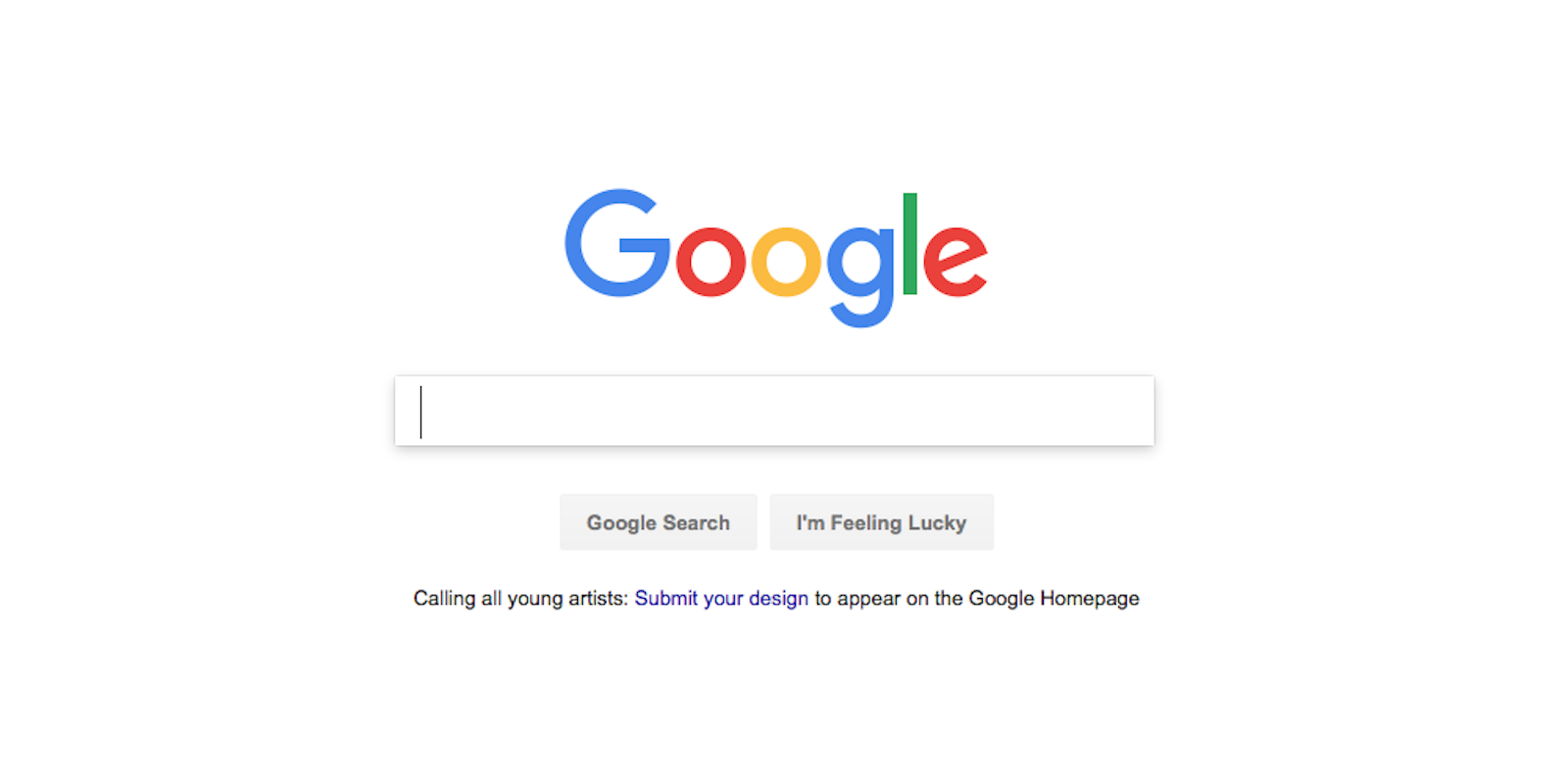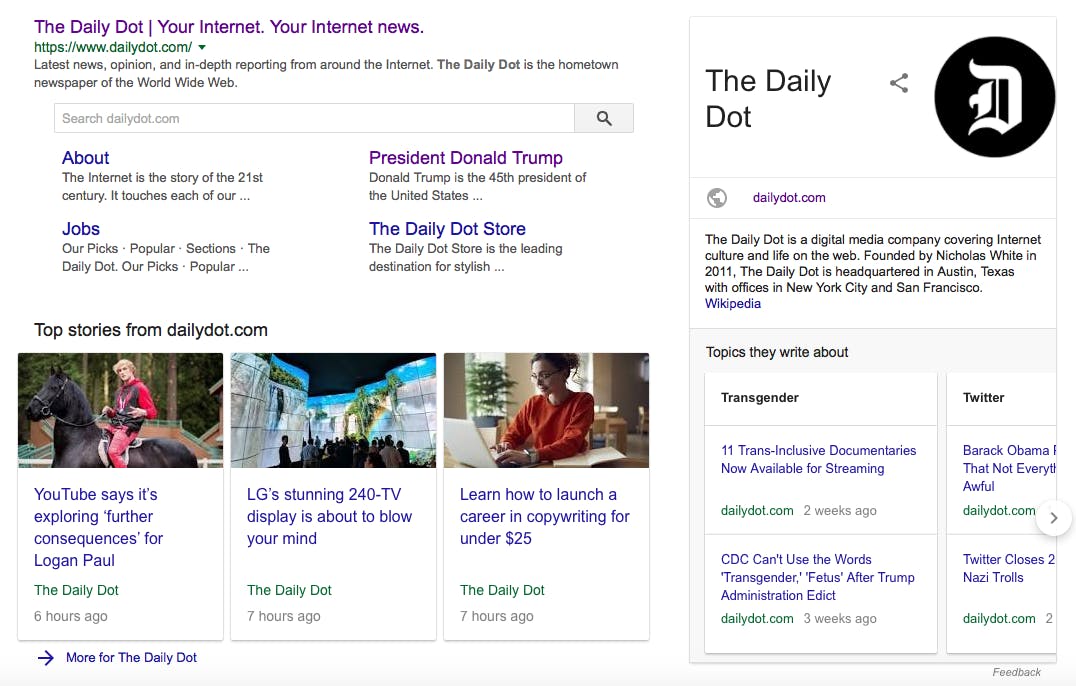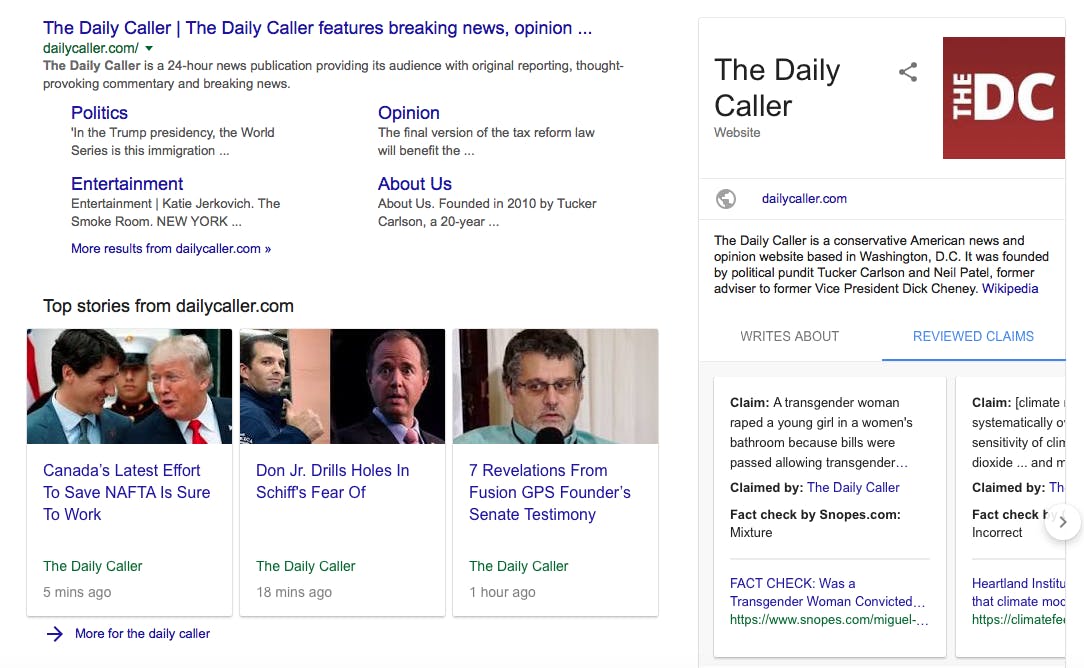Google’s new fact-checking initiative has some conservatives crying foul.
When you search for a specific publication in Google, the site adds a module with additional information about the news outlet. This sidebar gives a brief overview of the publication and its history, a list of topics often covered, past awards, and links to articles. However, for some publications, this module also includes a “Reviewed Claims” section conducted by Google’s fact checkers. Here you’ll find a list of disputed claims, links to the original article, the fact-checking consensus—was the statement incorrect, misleading, or “mixed”—and which third-party organization conducted the fact-checking.
Some websites, including conservative blog the Daily Caller, believe Google’s fact-checking efforts are skewed, however. It claims that Google is primarily targeting conservative sites with its “Reviewed Claims” section. Considering other factors such as the firing of conservative employees such as James Damore, who recently filed a lawsuit against Google, some believe that the search giant has a liberal agenda.
“A review of mainstream outlets, as well as other outlets associated with liberal and conservative audiences, shows that only conservative sites feature the highly misleading, subjective analysis,” the Daily Caller writes. “Several conservative-leaning outlets like TheDC are ‘vetted,’ while equally partisan sites like Vox, ThinkProgress, Slate, The Huffington Post, Daily Kos, Salon, Vice and Mother Jones are spared.”
https://twitter.com/HashtagGriswold/status/950851666114416640?ref_src=twsrc%5Etfw&ref_url=https%3A%2F%2Fgizmodo.com%2Fajax%2Finset%2Fiframe%3Fid%3Dtwitter-950851666114416640%26autosize%3D1
Below, you can see how the Daily Dot looks in a Google search result.
And this is what the Daily Caller, which has a “Reviewed Claims” module, looks like.
There are several conservative-leaning publications, such as the National Review and the Weekly Standard, which don’t pull up the Reviewed Claims tab in their search results.
The Daily Caller also claims that some of the fact-checked statements in this section don’t even appear in the linked articles. One of the examples the website cites no longer showed up in the fact-checking module in our search. Gizmodo found that this particular fact-checking instance was erroneous, and linked to a Washington Post article containing an inaccurate President Donald Trump quote, rather than a Daily Caller piece. It would appear Google has since removed this from its Reviewed Claims results.
Many false and misleading stories, particularly ones perpetrated on social media, stem either from right-wing sites or target conservative readers. With this in mind, it’s not surprising that most of the sites Google has targeted with its fact-checking module do tend to lean conservative.
However, it’s clear from using this feature that it’s not an effective way of alerting readers that a website’s articles have potentially erroneous information. Since most web browsers autofill, a Google search for “The Daily Dot,” “The New York Times,” or another publication usually takes you straight to the website’s homepage itself, not to this Google landing page. This fact-checking module is also tucked away. Your average Google user isn’t going to dive so deep into this sidebar that they’ll even learn which of a site’s articles contain disputed data.
While Google and Facebook are making efforts to combat the spread of misinformation online, it’s clear that work still needs to be done to make those measures effective. Whether conservatives will ever be assuaged that Google is not attacking their beliefs in these efforts is another matter. If your favorite sites spout disputed information, perhaps it’s time to re-examine what you believe to be fact, rather than whether reputable organizations have a vendetta against you.
H/T Gizmodo




